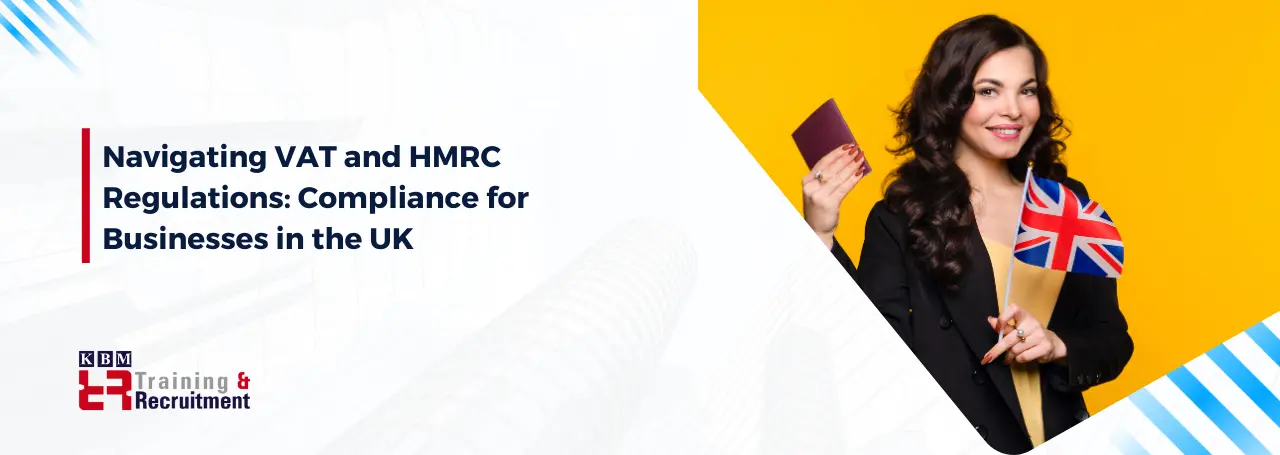In the intricate business finance landscape, two critical considerations for companies operating in the United Kingdom are value-added tax (VAT) and compliance with regulations set forth by Her Majesty's Revenue and Customs (HMRC).
This comprehensive guide aims to provide detailed insights and guidance, spanning 2000 words, to help businesses navigate VAT and HMRC regulations, ensuring compliance and financial stability.
Understanding VAT: A Fundamental Overview
- What is VAT: Value Added Tax, commonly known as VAT, is a consumption tax for selling goods and services. It is a multi-stage tax, meaning it is levied at each stage of the production and distribution chain.
- VAT Rates and Exemptions: VAT in the UK is charged at different rates, including the standard rate, reduced rate, and zero rate. Certain goods and services may be exempt from VAT or eligible for special rates.
- VAT Registration Threshold: Companies must register for VAT with HMRC if their taxable turnover exceeds a certain threshold. Understanding this threshold is crucial for businesses to comply with VAT regulations.
HMRC Regulations: Compliance Essentials
- VAT Returns and Payments: Companies registered for VAT must submit regular VAT returns to HMRC detailing their taxable sales and purchases. Complying with deadlines for submission and payment is critical to avoid penalties.
- Record-Keeping Requirements: Maintaining accurate and up-to-date records is fundamental to VAT compliance. Businesses must keep records of sales, purchases, expenses, and VAT transactions.
- Making Tax Digital (MTD) for VAT: HMRC has introduced Making Tax Digital, a program aimed at digitising tax processes. Understanding and adopting MTD for VAT is essential for businesses to comply with evolving regulations.
Common Challenges and Solutions
- Cross-Border Transactions: For businesses engaged in international trade, navigating VAT regulations for cross-border transactions can be complex. Seeking professional advice and utilising online tools can help streamline compliance.
- Managing VAT Returns Accurately: Mistakes in VAT returns can lead to penalties. Implementing robust accounting systems, conducting regular reconciliations, and seeking professional assistance can help manage VAT returns accurately.
- Compliance with Industry-Specific Regulations: Certain industries have specific VAT regulations. Businesses in these sectors must stay informed about industry-specific compliance requirements to avoid legal issues.
Navigating Changes in VAT Regulations
- Keeping Abreast of Regulatory Updates: VAT regulations are subject to change. Regularly checking for updates from HMRC, subscribing to newsletters, and participating in industry forums can help businesses stay informed.
- Adapting to Legislative Changes: When changes in VAT legislation occur, companies must promptly adjust their processes to remain compliant. Proactive monitoring and swift adjustment are crucial to navigating regulatory shifts.
Best Practices for Ensuring Compliance
- Invest in Training and Education: Ensuring that finance and accounting teams are well-versed in VAT regulations is crucial. Investing in training programs keeps teams updated on compliance requirements.
- Utilise Technology Solutions: Incorporating advanced accounting software that integrates with HMRC systems can streamline VAT compliance. Automation minimises the risk of manual errors and enhances efficiency.
- Seek Professional Advice: Engaging with tax professionals and consultants can provide businesses with tailored advice. Professionals can offer insights into specific industry challenges and help navigate complex regulations.
Wrap-up
Navigating VAT and HMRC regulations is a fundamental aspect of financial management for businesses in the UK. Companies can confidently navigate the complex VAT landscape by understanding the basics of VAT, staying compliant with HMRC regulations, addressing common challenges, and adopting best practices.
Compliance with VAT and HMRC regulations not only ensures legal adherence but also contributes to a business's financial stability and reputation. The regulatory landscape is continuously evolving, and embracing a proactive and informed approach is critical to successfully steering through the complexities of VAT for businesses operating in the United Kingdom.






















